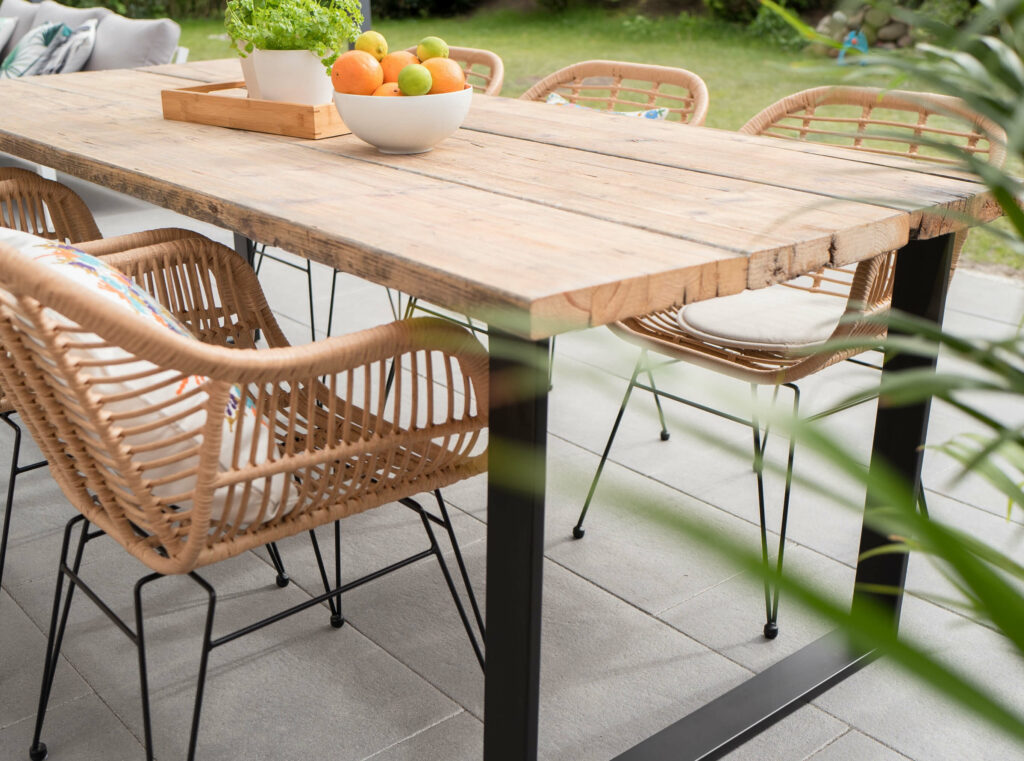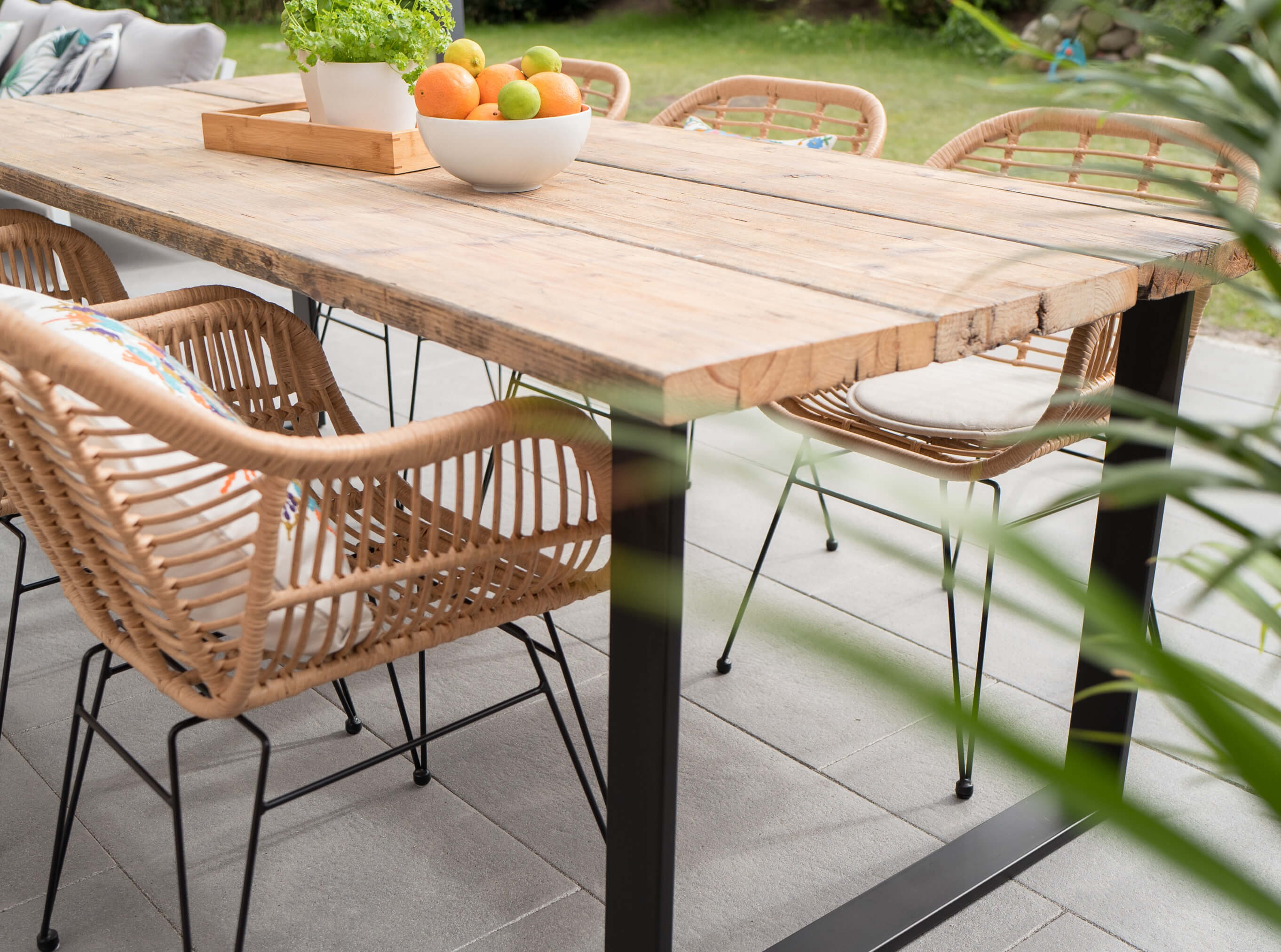Natural stone has long been a reliable choice for external flooring but lately, outdoor porcelain tiles are becoming popular too. One of the easiest ways to link your home with your garden, porcelain tiles can create that indoor/outdoor living feel. Whatever your preference, natural stone or porcelain paving can transform your garden into a lovely, usable space. If you’re not sure which option is best, have a read of our post as we weigh up the pros for them both…
Endurance over time
Natural stone has been around for thousands of years and as a result, this makes it perfect for residential projects. Most exterior stone is made 20mm thick, the industry standard and provides enough strength and durability for everyday use. Natural stone will also stand the test of time, even in harsh weather conditions, offering a long-lasting patio option. Additionally, granite is considered to be one of the most robust stones, but you will need a thicker slab if you expect your paving’s going to see high traffic.
Made from a mixture of clay and sand, porcelain slabs are highly refined and baked at a high temperature. This makes them an extremely durable choice as they are non-porous, and perfect for the unpredictable British climate. Each slab is made 10 or 20mm thick and can take a lot of weight so are perfect for spaces like driveways. Porcelain is also able to withstand most weather conditions without being susceptible to damage such as frost, heat or excessive moisture.
Colours and finishes
Organically sourced from the earth, natural stone provides authentic colour and tone variations. Some stone even has the occasional fossil, like Fossil Mint, due to the odd fern that appears here and there. For this reason, natural stone promises a wealth of opportunity for a garden that’s bursting with character. Each slab is unique – that’s the best part and offers a long-lasting non-slip surface with beautiful aesthetics.
Outdoor porcelain tiles have a printed surface that imitates the appealing look of natural stone. Options range from dark, striking tones to light, modern shades that will serve as the backdrop to your garden design. This replication also means a great choice of finish, whether lappato or matt, so you can enjoy the aesthetics but adapt the surface texture to suit your needs. This is particularly convenient if you’re installing in an area that often gets wet and want the reassurance an anti-slip rating provides.
Cleaning and maintenance
Due to its porous form, natural stone should be sealed to ensure its protection against stains from spills. If an accident happens, you have time to clean up – FILA’s MP90 ECO XTREME, in particular, hampers the absorption of water and oily stains. Not only that, but it’ll prevent algae and moss and provide protection in places where it’s likely to see lots of use. Natural stone should also be cleaned on a regular basis to keep it looking its best; try FILA’s CLEANER PRO, which delicately cleans all types of floors.
Because outdoor porcelain tiles are non-porous, excessive moisture cannot penetrate the slab. A stain will not seep into the tile as it usually would with a stone and can be removed without any hassle. This type of paving also won’t be prone to algae or mould, and any accidental spills can be simply wiped with a cloth. As a result, porcelain will save you plenty of time when it comes to your garden if you don’t have a lot to spare.
Natural stone vs porcelain paving in summary
Natural stone is an affordable choice, and so it’s easy to see why homeowners choose this option for their garden paving. You should bear in mind, however, the additional care and the products needed to maintain natural stone. As a comparison, porcelain tiles are a much simpler choice and won’t need regularly sealing. FILA’s PS87 PRO can be used to remove tough stains, but apart from that, maintaining porcelain is a walk in the park!
Thank you for reading our post; did you know on average, most people will only lay one or two patios throughout their life? It’s, therefore, key to take the time to understand both options so you can make the right decision for you – it doesn’t hurt to be well informed. There’s also simply no right or wrong answer, it’s totally your call, and both will create a garden you’ll love all year. For tile and stone treatments, look no further than FILA – please get in touch if you need further advice. Thanks again.

